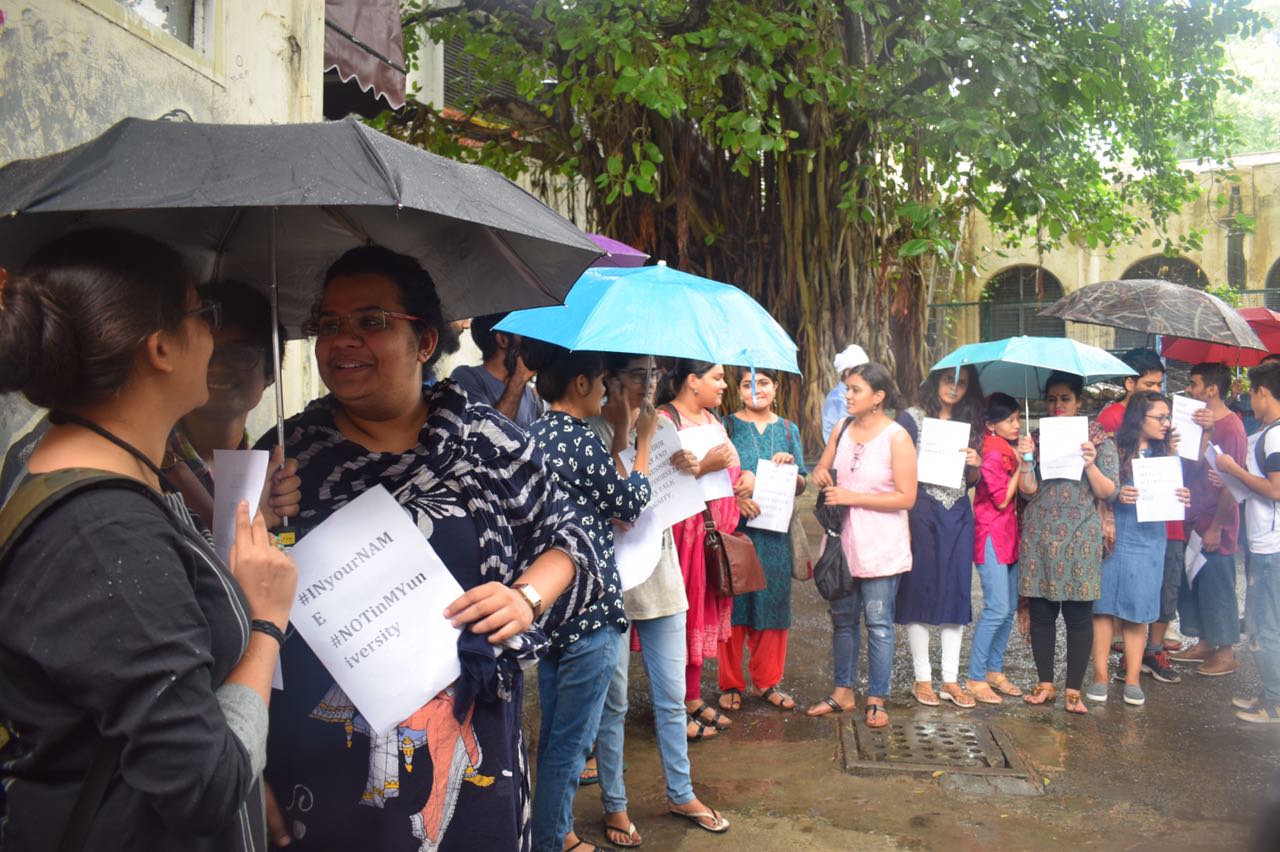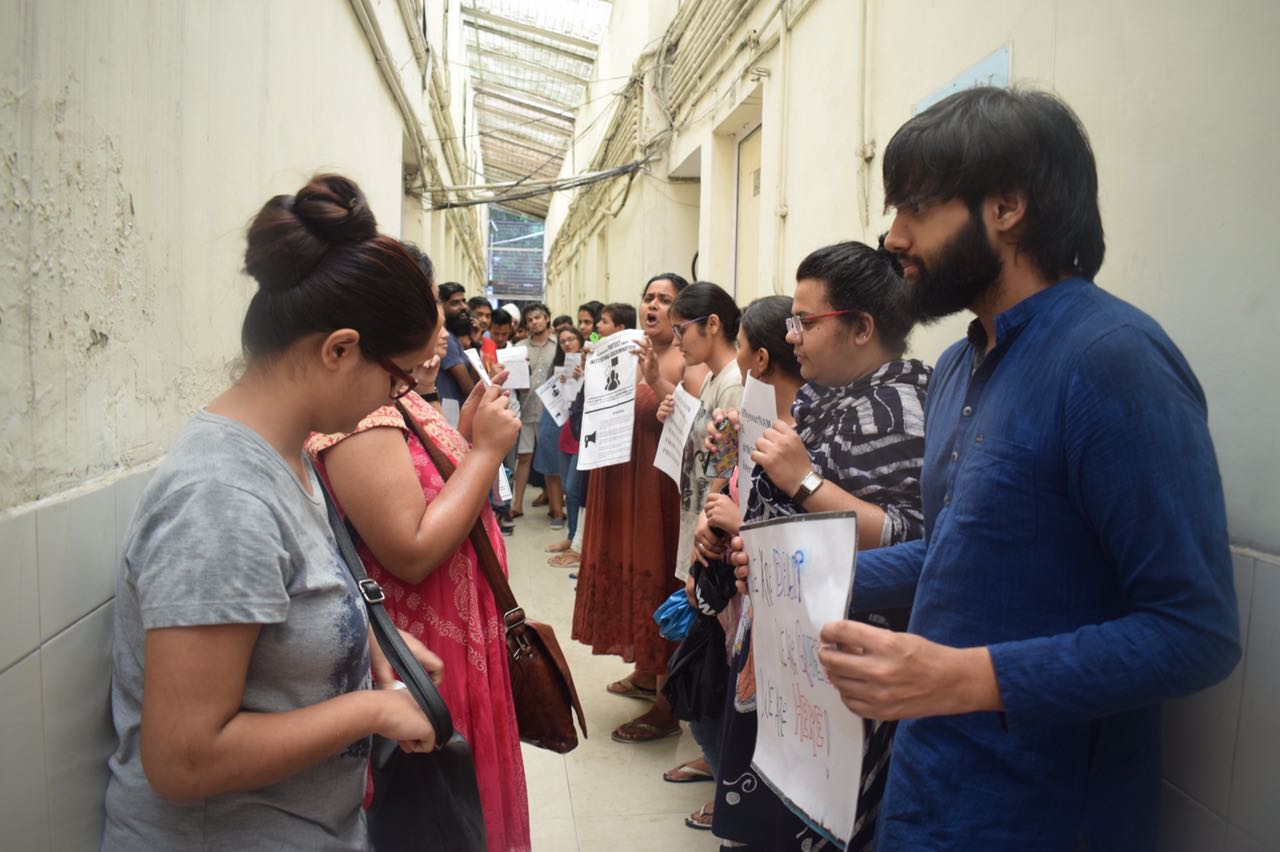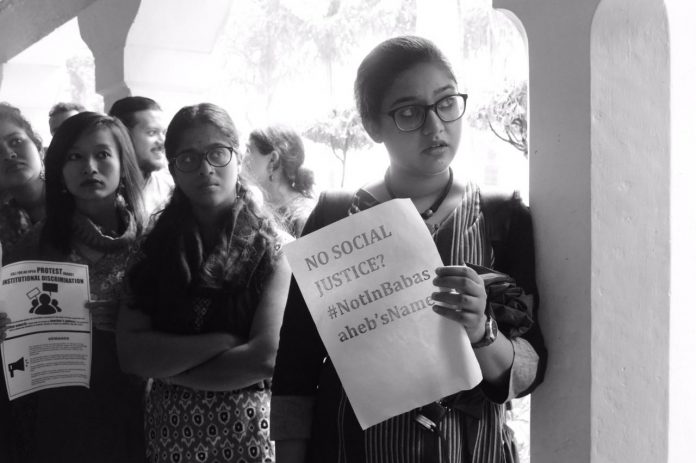
By TwoCircles.net Staff Reporter
Photos courtesy Feminism in India
In another case of alleged discrimination against Dalit students in Indian Universities, Akunth, a second-year BA student at the Ambedkar University, Delhi, was debarred from attending classes for a year for ‘failing’ one subject out of 14 papers. Akunth has alleged that this is a clear case of discrimination against his Dalit and queer identity.
In an open letter published on social media in the last week of September, Akunth said he had been time and again targeted for his identity. “A Bachelor’s second year student needs to pass at least 14 courses to be promoted to the third year; I passed 12, failed 1 and challenged the results of 3 courses. This makes it impossible for me to be promoted unless I pass in at least two of the ‘challenged’ courses.”

In the same open letter, while explaining about the causes of his detainment, Akunth wrote, “One of my course coordinators had refused to accept my assessments on the day of the submission because they were handwritten, which resulted in me failing the course. In the process of rejecting the submission in various formats, she also went as far as to remark and question my Dalit Queer identity multiple times on email, despite having full knowledge that I was seeking therapy to deal with homophobic and casteist elements on campus. The teacher deliberately failed me despite knowing that not grading my report, on the basis of which she took a viva and graded it, can result in me failing my year. To look into this case the present Dean of School of Undergraduate Studies, Dr Tanuja Kothiyal instituted a 4 person internal committee comprising of two teachers at least from the department of the teacher involved (School of Human Studies) with no student representation on the committee, let alone a Dalit.”
This act of the University has not gone down well with students from the Dalit-Bahujan community in the campus and outside it. Birsa Phule Ambedkar Students Association (BAPSA) and the National Campaign on Dalit Human Rights (NCDHR) on the September 22.

A memorandum was immediately sent out after the protest with the demands of the student body on it. Some of the demands being stated as “The university needs to establish the equal opportunity cell, the ST/ SC cell and various other cells which serve as redressal mechanisms for marginalised students. There should be a proper quasi-judicial, arbitrary body with student representation to address student grievances of any kind or a redressal mechanism with proper policy and representation of student body on it.”
The correspondent also talked to the signatories of the memorandum and enquired about the issue. One of the signatories, Rani Sinha, said “As an OBC student, I understand how casteist agony inflicted on Akunth can ruin our lives. I am appalled and angry because this should be allowed to happen. We were told that we don’t have any agency to decide our own ‘harassment’. We were told that we were ‘outsiders’. I am with Akunth because I have to do away with the hegemony of Caste Hindus in the Academia.”
Another student, Abha Muralidharan, said, “This hierarchy is not just in terms of the relationship of professor-student but caste, gender, sexuality. As more and more layers of systemic errors that were foreclosed began to emerge over the course of this case, I realised that the university encashes on caste and gender. I am still appalled by the fact that a university in the name of Ambedkar doesn’t have an SC/ST grievance cell nor a liaison committee with just representation to redress issues.”
While the issue is far from over, it has once again exposed how difficult it can be for students from marginalised communities to make their way through an academic world dominated by upper castes.

